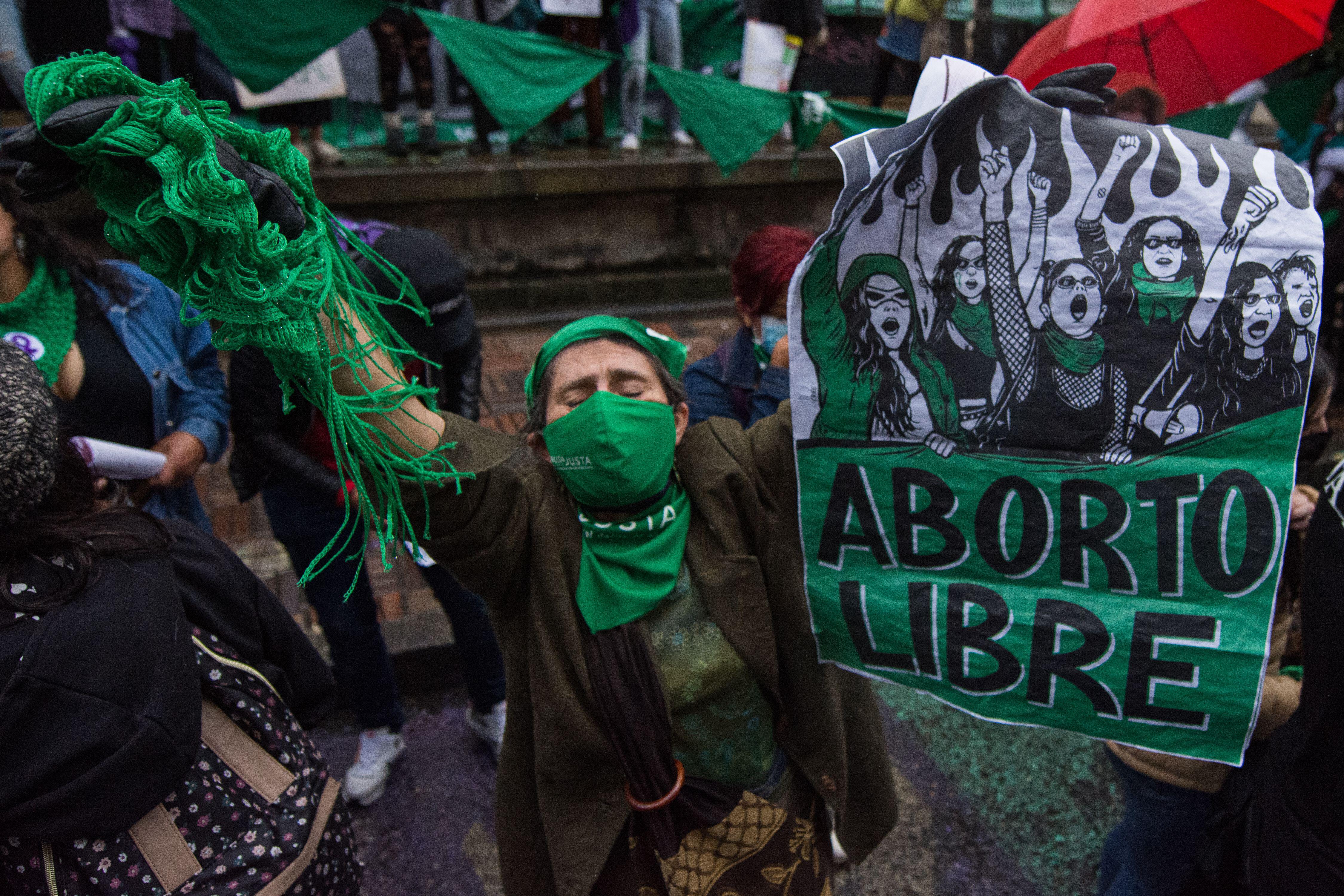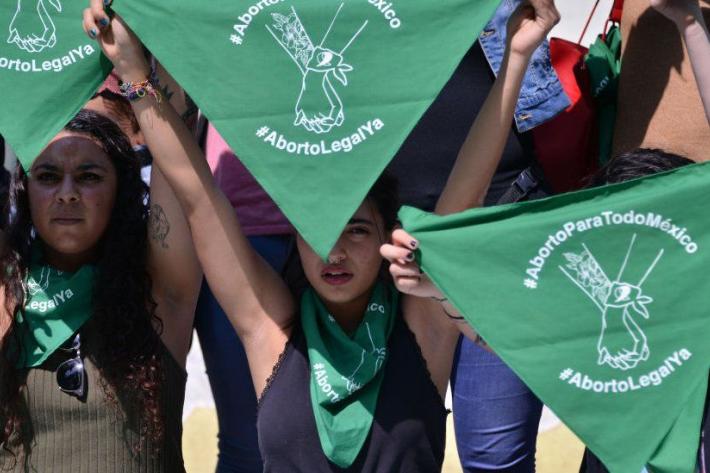Latest press releases
A selection of stories from across the Federation

Netherlands
Rutgers triumphs in landmark court case against lies, online hate and disinformation
Rutgers, the Netherlands’ leading sexual and reproductive health expert and IPPF’s Member Association, has today secured a landmark legal win against an ultra-conservative group.
For media enquiries


| 03 March 2022
Statement on the growing humanitarian crisis in Ukraine
Over the past few days, the world has watched in horror and disbelief at the events unfolding in Ukraine. It is estimated that over 500,000 people have now fled – many of whom are women and children – into neighbouring countries such as Poland, Hungary and Romania. The UN anticipates 4 million refugees by July 2022. During Humanitarian crises, sexual and reproductive healthcare is often overlooked. But the reality is daily sexual and reproductive healthcare needs such as essential care for pregnant people, access to menstruation products for people who menstruate, as well as ensuring people who need sexual and reproductive health assistance have access to the right information, remains an urgent priority. IPPF is working with partners on the ground in Poland to link those fleeing the conflict with critical sexual and reproductive health services as well as provide them with essential items. Julie Taft, Director of Humanitarian for the International Planned Parenthood Federation, said "As we mark one week since the invasion of Ukraine, the complex humanitarian situation has become even more apparent. Right now, millions across the country are fighting for their survival, while food, medical supplies and essential hygiene products run dangerously low, including equipment needed to provide life-saving sexual and reproductive healthcare. The destruction of healthcare infrastructure also means that women are forced to deliver their babies in bomb shelters. At the same time, sick and vulnerable new-borns must receive care in the basements of hospitals. "In response to the growing humanitarian crisis, the International Planned Parenthood Federation has partnered with the All-Poland's Women's Strike, a Polish women's rights movement currently supporting people displaced by the war. The $50,000 USD grant will go towards dignity kits, consisting of basic hygiene supplies, menstrual-hygiene products, blankets, food, diapers and baby clothes. Items will be distributed to Ukrainians who have fled into Poland as well as transported cross-border into Ukraine. The funds will also support the All-Poland's women's strike to link refugees who have crossed the Ukraine-Poland border with essential healthcare services. "IPPF is proud to partner with such a brave and unyielding organisation on the frontline and will continue to work closely with other NGOs to facilitate care for those who need it most. However, NGOs cannot operate efficiently without the support of the international community, which must guarantee the safe passage of humanitarian aid into Ukraine. The urgent need for unhindered humanitarian access is especially significant for unaccompanied minors and those left behind, who are often the most vulnerable populations and who will require distinct care during this tragic situation." Marta Lempart, Founder of the All-Poland Women's Strike, said: "We are deeply committed to helping displaced people flee the invasion of our neighbour, Ukraine. Our teams across Poland are working around the clock to support vulnerable people crossing both at the border, including unaccompanied minors at-risk of trafficking and those left behind or heading back to Ukraine. Both groups will require personalised care and support. "We are pleased to partner with the International Planned Parenthood Federation, so we can continue delivering dignity kits to those who need them most; for displaced people arriving with just the clothes on their back, access to even simple necessities are a lifeline. We are also thankful for the outpouring of support from across Europe - the funding will help care for exhausted families who have made it safely across the border, covering transport, rent, bills and other expenses as they begin to build their futures outside of Ukraine. "Disasters reinforce, perpetuate, and increase existing inequalities, making bad situations even more tragic and resulting in consequences that will carry down for generations. But with the international community's support, we can ensure that organisations like Women's Strike and IPPF are there for people every step of the way." Click here if you would like to donate to IPPF's Ukraine Appeal. For media enquiries, please contact Karmen Ivey on [email protected] or [email protected]

| 22 February 2022
Colombia decriminalizes abortion
Today, the Colombian Constitutional Court decriminalized abortion up to 24 weeks in another victory for the Green Wave sweeping through Latin America. The historic decision follows years of campaigning by women's right's activists across Colombia and came off the back of two lawsuits that asked the court to declare article 122 of the penal code, that "the woman who causes her abortion or allows another to cause it, will incur a prison sentence from sixteen (16) to fifty-four (54) months" as unconstitutional. The court called an extraordinary meeting today, Monday 21st February, and took just a few hours to come to its decision which will go into effect immediately. ProFamilia, the International Planned Federation's Member Association in Colombia, and Colombia's largest provider of legal abortion care were heavily involved in pushing to extend the rights of those needing to access abortion care. Marta Royo, Executive Director for Profamilia, IPPF's Member Association in Colombia, said: "Today is a ground-breaking moment for the people of Colombia and a long-overdue guarantee of reproductive rights and dignity for all those who need abortion care, especially poor and rural women who bear the brunt of restrictive abortion policies. "The decriminalization of abortion up to 24 weeks in Colombia and the Green Wave movement across Latin America is centred not just on public health, but also the full lives, citizenship and human rights of girls, adolescents, and women – who, for multiple reasons, including inequity, access to education, gender-based violence and barriers to healthcare – continue to face unintended pregnancies. "The freedom for women to finally make their own choices about their pregnancies and their bodies is fundamental to disrupting the cycle of poverty that so many in Colombia face. This monumental decision is also a win for the dedicated health care providers, who will finally be recognized as people who simply care about the needs of others." While Colombian women have supposedly been able to access abortion care since 2006 under three circumstances: if their life or health is at risk, in cases of fatal foetal abnormalities, or if the pregnancy is the by-product of rape or incest, in reality, the criminalization of abortion persisted. The Guttmacher Institute found that less than one per cent of the estimated 400,000 abortions carried out each year in Colombia are performed legally, with women, especially poor, rural, vulnerable and marginalized women, facing significant barriers to accessing safe and timely abortion care. Many Colombian women are instead forced to carry their pregnancies to term or else seek other methods to end them. Figures collected by ProFamilia showed that during 2020, there were at least 26,223 unsafe abortions across Colombia, a startling amount for which consequences range from infection to life-changing injuries to death. As per the previous abortion law, other women have been imprisoned for up to four and a half years for having an abortion, even in cases where abortion should have been legal. In a shocking example of discrimination, data collected showed that poor rural women were more likely to be charged, with a third of those who faced charges also survivors of sexual violence. Eugenia Lopez Uribe, IPPF's Regional Director for Americas and the Caribbean Region, said: "Today Colombia took another step in the right direction for gender equality and full human rights for all, and we are incredibly proud of IPPF's Member Association, ProFamilia, for their tireless work alongside thousands of activists across Colombia and Latin America "This 24-week decriminalization is historic in the region and especially remarkable when we consider the current fragility of abortion rights globally and the anti-choice movements which continue to plague nations across the world, including in countries close to home like the United States of America. "While today we are celebrating this historic decision, the Green Wave is strong and growing, and the fight for reproductive rights and justice will not end until every person can access high-quality sexual and reproductive healthcare when and where they need it." For media enquiries in English, please contact Karmen Ivey on [email protected] or [email protected] For media enquiries in Spanish or during UK night-time hours, please contact Pamela Martin Garcia on [email protected]

| 21 February 2022
Mexico’s Supreme Court votes to decriminalize abortion
The International Planned Parenthood Federation (IPPF) welcomes the unanimous decision taken by the Supreme Court of Mexico to decriminalize abortion. The decision is a step closer for women and pregnant people to fully exercise their reproductive rights and bodily autonomy through safe and legal abortion care. Abortion is legal in four out of the 32 federal entities in Mexico. Only four other countries in the region - Argentina, Cuba, Uruguay, and Guyana have almost unrestricted and legal access to abortion care. Eugenia Lopez Uribe, IPPF’s Regional Director for the Americas and Caribbean said: “This historic ruling by the Supreme Court of Mexico is thanks to the feminist movement in Mexico and in the region, who have been relentless in their fight the law to recognize the dignity and humanity of people seeking abortion care. This decision will continue the Green Wave ripple effect across the region - we look at Argentina last year and now Mexico, these movements give us hope and motivation to continue to fight for sexual and reproductive health and rights for all.” Esperanza Delgado, Strategic Director for Advocacy and Interinstitutional Relations of MEXFAM added: “September 7 will become a memorable date in Mexico. In a progressive pronouncement in favour of reproductive autonomy, respect for the secular State, and the rights of women and pregnant people over those of the embryo, Mexico's highest legal authority indicated that it is unconstitutional to punish those who decide to terminate a pregnancy at its early stage. “All of us who have joined forces and who are fortunate enough to fight for the recognition of human rights, should be proud and may our achievement inspire others in every corner of the planet. MEXFAM is committed to making this long-awaited legislation a reality for every person that decides to choose.” For media inquiries please contact [email protected]
















